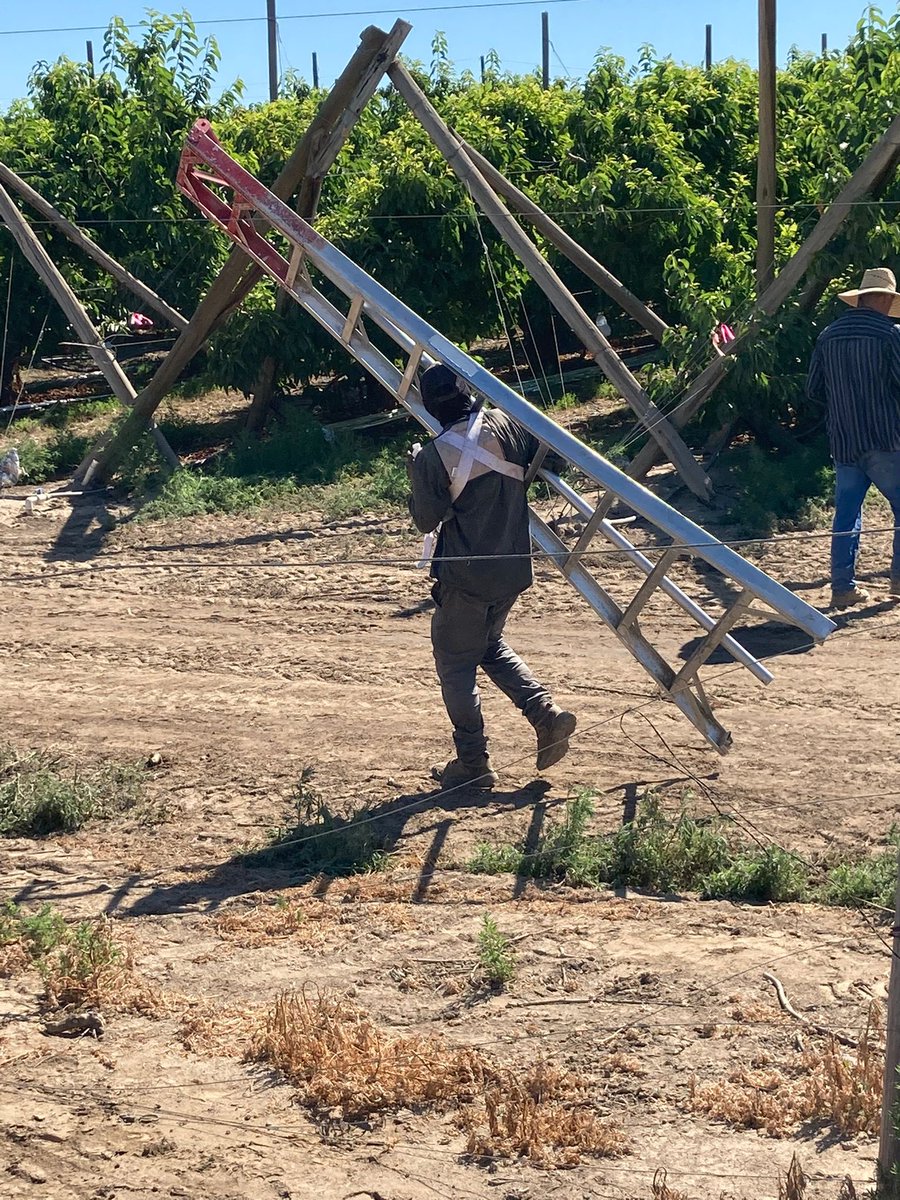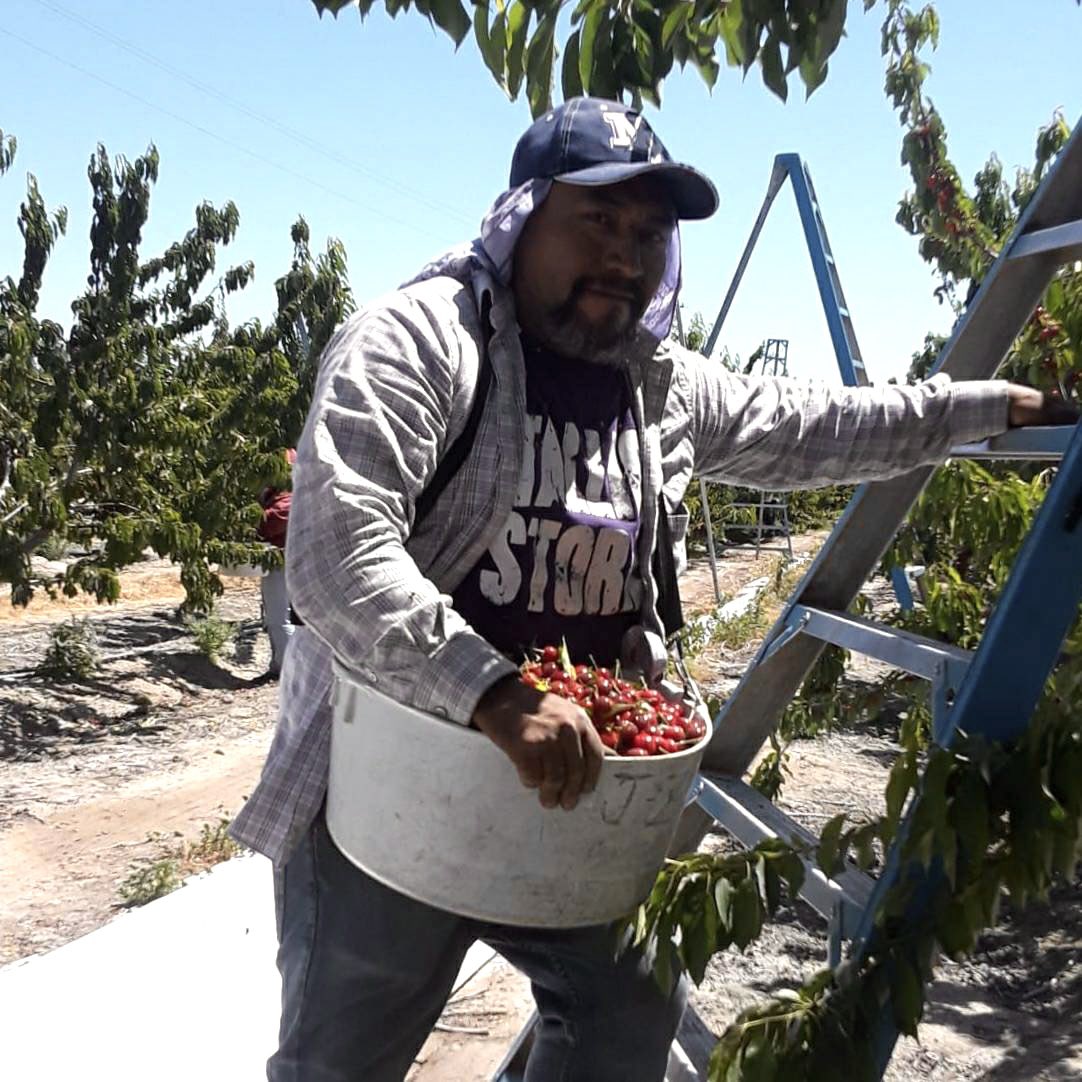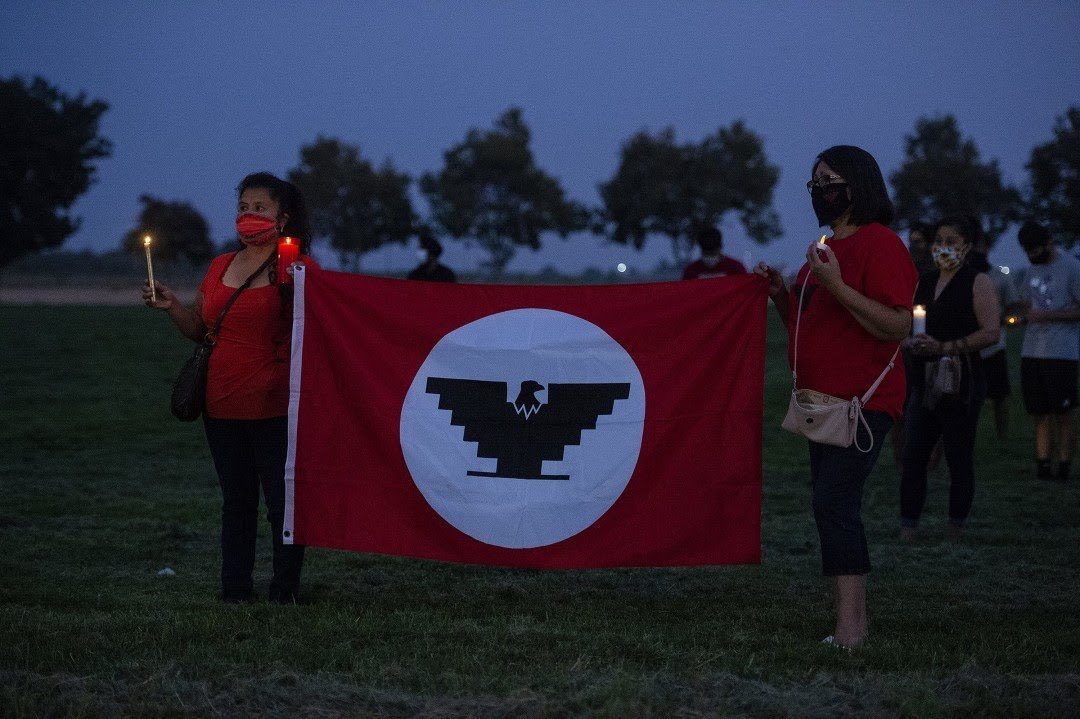
WA does not require employers to provide us with the heat protections needed to save our lives. This must change.
It’s cherry season so conditions are incredibly dangerous. With labor needs at peak, workers from 12 years old to 70+ are out working. High tomorrow of 118° here. 1/
It’s cherry season so conditions are incredibly dangerous. With labor needs at peak, workers from 12 years old to 70+ are out working. High tomorrow of 118° here. 1/

OR is in the process of creating better rules to protect us against heat injury, but the process won’t be finalized until September.
In the meantime, will farm workers die preventable deaths? These are unprecedented temperatures.
In the meantime, will farm workers die preventable deaths? These are unprecedented temperatures.

We are grateful to the volunteers helping us do emergency outreach, checking on worksites and distributing information, water and electrolytes.
Many are vineyard workers who are using a day off, helping migrant workers employed in other sectors. They shouldn’t need to do that.
Many are vineyard workers who are using a day off, helping migrant workers employed in other sectors. They shouldn’t need to do that.

Since most are paid by piece rate, there’s a perverse incentive to work faster, to not slow down or take breaks. Rest is money out of pocket.
For children, or for adult workers not used to these extreme temperatures, the situation is dire. Without protections people will die.
For children, or for adult workers not used to these extreme temperatures, the situation is dire. Without protections people will die.

Governors of affected states could issue emergency protections via executive order, but we also need a federal heat protection standard. Visit here to urge your members of congress to pass these bills and create a federal standard.
ufw.org/heat21_t
ufw.org/heat21_t
Once you’ve told your governor and your members of Congress what you think, here’s another way to help: send us money.
Donations help us do everything we can to save farmworker lives. We are stretched very thin trying to respond to this crisis.
Donate @ ufw.org/heatdonate
Donations help us do everything we can to save farmworker lives. We are stretched very thin trying to respond to this crisis.
Donate @ ufw.org/heatdonate
We’ll end on a moral math equation:
This crew is trying to save the cherry harvest in Benton City, WA. It was 113 today, high of 117 tomorrow. They’re being paid 30 cents per pound. #WeFeedYou
This crew is trying to save the cherry harvest in Benton City, WA. It was 113 today, high of 117 tomorrow. They’re being paid 30 cents per pound. #WeFeedYou

• • •
Missing some Tweet in this thread? You can try to
force a refresh










